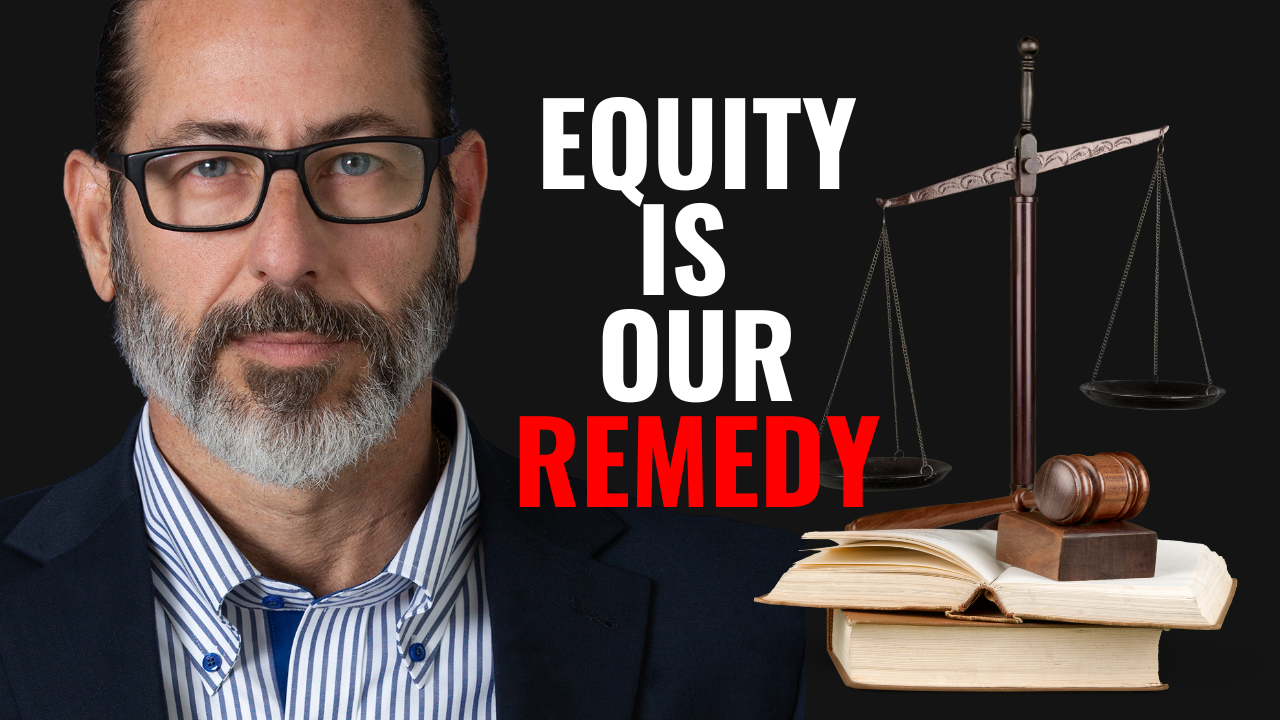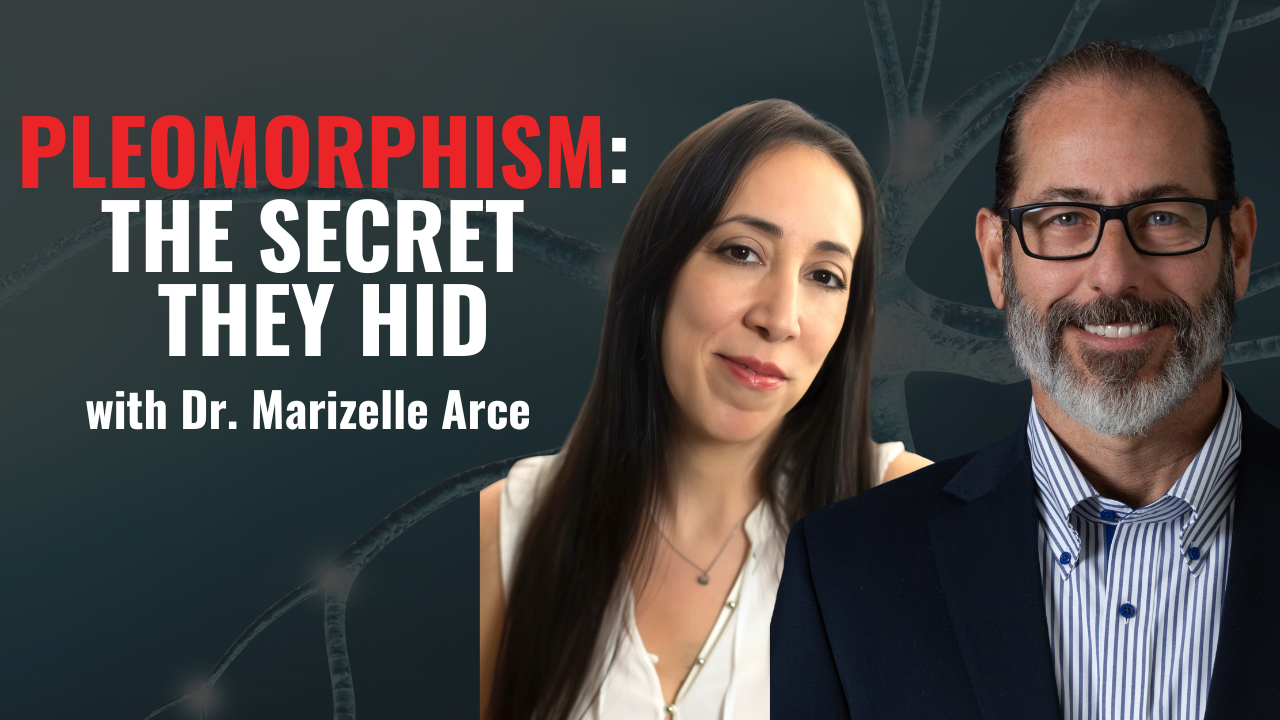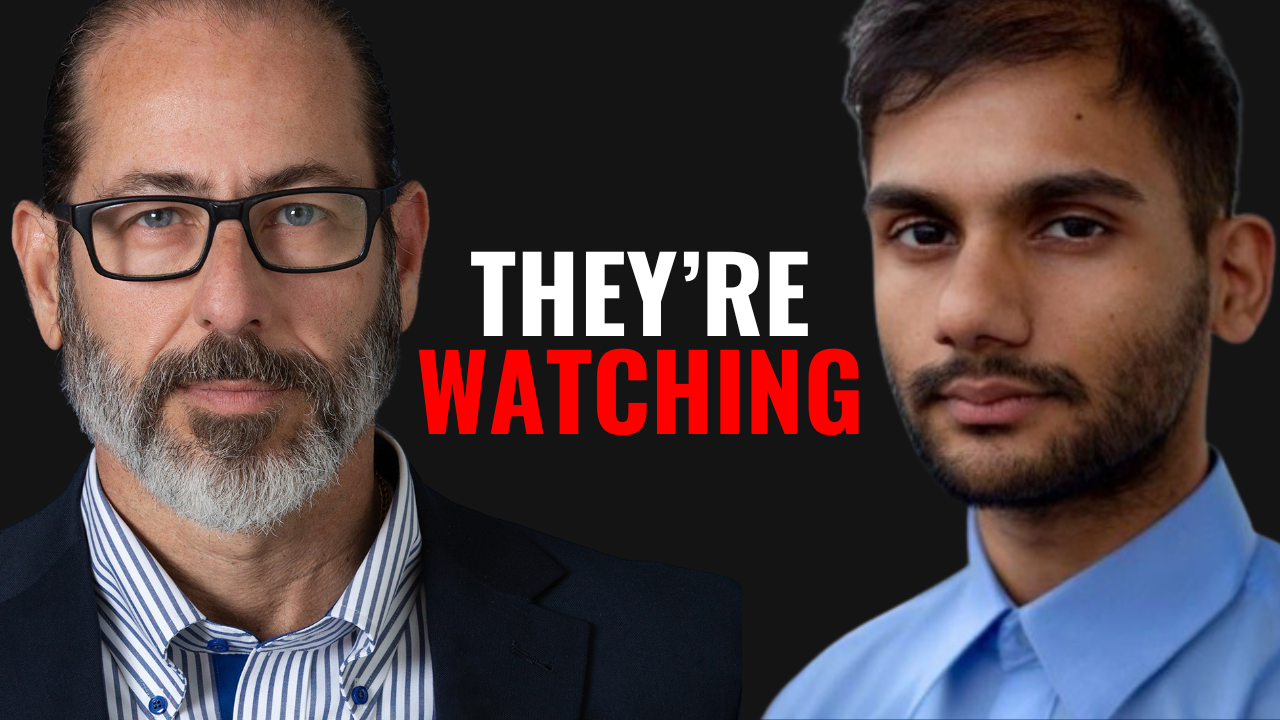The Hidden Truth About Modern Medicine: Why It’s Not All What You Think
Jun 28, 2025
You’ve been told that modern medicine is the only system you can rely on, but that couldn’t be further from the truth.
In this episode of The True Health Report, Dr. Andrew Kaufman uncovers the reality behind the allopathic health system and why it’s not built with your health in mind — but rather, your wallet.
The Profit-Driven Medical System
The modern healthcare system isn’t designed for your well-being — it’s built to generate profit.
From the 20th century onward, John D. Rockefeller, along with several of his Big Oil companions, forever reshaped medicine with the birth of the American Medical Association (AMA), which turned healthcare into a money-making racket.
As a result, alternative treatments like homeopathy and naturopathy have been pushed to the side and scoffed off as “quackery,” leading to an accreditation system that was built to separate the complacent from the open-minded.
The “Cut, Burn, and Poison” Model
However, before the AMA and Rockefeller, medicine used to address the human body in its entirety. When the skin was affected by a sudden rash, it would’ve been considered a liver congestion. When the brain wasn’t functioning well, often nutrition and the gut would’ve likely been involved.
Fast forward to today, routine check-ups and error-ridden tests have us jumping straight into the “Cut, Burn, Poison” approach – surgery, radiation, and meds. The much revered tests convince us we’re sick, even when we’re not – and that’s exactly the point.
Next thing you know, you’re on a cocktail of medications, paying for more tests, all while your body’s health — and your wallet — plummets.
As my old friend David Icke puts it: “Problem, Reaction, Solution.” One dubious stool test result leads to anxiety, a colonoscopy, a ruptured colon, surgery, and you end up with a slew of debt.
Allopathic medicine is simply nothing more than a business model disguised as healthcare.
What You Can Do
In conclusion, you don’t need to completely avoid the medical system, but you do need to know what your rights are and how to steer clear of its many pitfalls.
Dr. Kaufman explains when tests can truly be useful, how to read consent forms carefully to avoid unnecessary treatments, and why you have the power to negotiate treatments.
What You’ll Learn
- How Big Oil helped create today’s medical system
- Who your doctor is actually serving (not you)
- How preventive care became a money-making racket
- How to make the medical system work for you in an emergency
- The rights you have (but probably don’t know about) when signing medical forms
- How to legally skip out on paying for health insurance
- How robots and AI are taking over modern medicine
Free Download: Dr. Kaufman’s Ultimate Detox Protocol
Knowing the truth is just step one — taking back your health freedom is where transformation truly starts.
Dr. Kaufman’s Ultimate Detox Protocol is a step-by-step, food-based guide to flush toxins, restore nutrient absorption, and reclaim your health — keeping you in charge of your own health without ever needing interference from the mainstream medical complex.
“This protocol changed my life.”
“My mother’s kidney function doubled.”
“We feel 20 years younger.”
Timestamps:
00:00 – How most people become entrapped by modern medicine
01:00 – The dark history of medicine in the US
04:26 – Modern medicine’s corrupt business model
08:25 – Getting rid of your health insurance (legally)
10:48 – Getting annual physical exams: are you being responsible or scammed?
15:47 – The rare cases where getting tested can be useful
17:48 – Be careful what you sign at the hospital
20:41 – How to avoid unnecessary treatment at the ER
Links:
42 U.S. Code § 1395dd
How to Stay Out of the Emergency Department
GAAP (Generally Accepted Accounting Principles)
The Emergency Medical Treatment and Active Labor Act (EMTALA)
Diagnostic Deceit: The Shady Business of Medical Testing
Full Transcript:
Many of you are involved with the allopathic health system to one degree or another, and so I thought this was a good opportunity to learn more about what the consequences of that might be, depending on your situation and level of engagement. I also want to explore where you might be led astray, or where a situation might not be in your best interest.
I wanted to do this by talking about the past, present, and what I think is going to be the future of the allopathic medical model. So let me start talking a little bit about the history of medicine in the United States. I know the history of the United States the best, but I think much of what I'm going to say is true for most of the rest of the world, especially, of course, the Western world. But even many of these doctrines have made their way to Eastern countries, including China.
Before really the early 20th century or late 19th century, most physicians in the United States were actually homeopaths. Second to that were naturopaths. There were some allopaths, but they were a small minority. Also, in the 1800s, the field of chiropractic began to develop. So, we didn't have the kind of cut, burn, poison model of allopathic medicine at all in the nation's history, or only to a minor degree.
In the 1800s, the medicines predominating among allopathic physicians were mercurials and arsenicals. These were compounds based on mercury and arsenic—known toxic heavy metals—and they were used for all kinds of maladies, even childhood teething and colic. They were supposed to give mercurial pills or drops to children until they had diarrhea or vomiting, indicating that there was enough toxicity.
When the big oil revolution occurred in energy, and we all know about Rockefeller and Standard Oil, it became possible to make synthetic chemicals based on petroleum. One of the first products was something called “Nujol,” a type of mineral oil used in medicinal applications and still used in some laboratory procedures today. Of course, the pharmaceutical industry largely came from the petroleum industry.
To support this, Rockefeller, JP Morgan, and others from the so-called "robber baron" class developed the American Medical Association (AMA) and put key propagandists in leadership positions. They began to criticize natural medicine, calling them "quacks," and tried to claim legitimacy for pharmaceutical products.
They also commissioned a study on medical education called the Flexner Report, which concluded that natural branches of medicine were bogus and quackery, and that allopathic medicine was the only true model. This revolutionized medical education in the United States, closing many homeopathic and naturopathic schools. Only allopathic medical schools received accreditation or approval from the AMA and the federal government, and this became the predominant model for medicine.
I call this the "cut, burn, poison" paradigm, because it includes surgery (cut), radiation therapy (burn), and pharmaceuticals (poison).
If we look separately at the business model of medicine, it consisted of independent doctors. Even when I was first starting out in hospitals, many doctors, especially in community hospitals in rural areas, had a private practice. They had privileges at the hospital and treated their own private patients there when they needed hospital-level services.
This model allowed for a lot of freedom in terms of setting prices, deciding what services to offer, and choosing personnel. It allowed for individualized medical treatment, even if it was based on the allopathic model. But over the latter half of the 20th century, with the advent of third-party billing (such as HMOs and health insurance), this all changed.
What this did was change the relationship between doctors and patients. Now, doctors are paid by insurance companies, not directly by the patient. As a result, doctors are beholden to the insurance company, which dictates what types of treatments and medications they should prescribe. The patient is no longer the primary responsibility of the doctor.
This shift also meant that insurance companies began dictating what doctors should do. For example, they want doctors to prescribe certain medications, like cholesterol-lowering drugs or blood pressure meds, or order specific screening tests. This has really transformed the industry, as most doctors are now employees, not independent practitioners, and clinical practice is guided by electronic health records and commercial interests.
Hospitals, as employers, have specific formularies and negotiate with drug manufacturers to prescribe certain medications. While doctors may appear to have the freedom to not follow these guidelines, if they don’t, they may be reprimanded. This is usually by someone from the business side of the hospital, like an MBA or a lawyer, who will ask why the doctor isn’t following the guidelines and may even threaten their job if they don’t comply.
So, in this system, we need to ask: who does the doctor really work for? How can we obtain good quality care when the institutions of medicine are serving these other interests?
For example, if we feel the need to have health insurance, we subject ourselves to this system. However, if an emergency arises, and there are some situations like that–and I've discussed them in my How to Stay Away from the Emergency Department masterclass, which you can all watch for free if you haven't already seen it–the hospital may be more concerned with serving the insurance company than the patient. But even without insurance, federal law requires emergency care facilities to treat you, regardless of your ability to pay.
If you don't have insurance, you have negotiating power. Hospitals must treat you, and you can negotiate for the services you need, rather than what suits the insurance company. Even if you're an employee with health insurance, you can legally opt out. There are very few exceptions to this, though your employment contract may include some requirements.
If you opt out, you might have to provide proof of your own insurance, but this can be done through self-indemnification. You can create a bond for yourself, showing that you’re self-insured, which is completely legal and described in federal statutes. It requires some effort, but it’s possible to protect yourself if you find yourself in a situation where you need to seek emergency treatment.
Now, let’s talk about preventive care. I’m talking about routine annual physical exams and lab tests. I would describe this practice as a sales model, rather than something beneficial for your health. Even when I was in medical school in the early 2000s, it was taught that annual physical exams were not beneficial.
A lot of times, physicals are required for employment or for children to go to summer camp or college, but they have no known benefit. What's actually happening is that they’re trying to establish "risk factors" for disease, which are merely associated with the development of a problem in the future—not causal. Many of these risk factors have even been redefined as diseases themselves—like prediabetes, obesity, or high blood pressure.
These screenings are often done through tests, but many of these tests are not validated, or not properly validated. I’ve talked about this before in a livestream on diagnostic tests. The problem with these tests is that they use statistical models, which unfortunately don’t capture all the situations. As a result, a so-called "abnormal" result might actually be normal, and doctors may start treatment based on this.
This is how people end up caught in a landslide effect of interventions. It starts with an abnormal result, then a follow-up test, and before long, they’re on multiple medications or even undergoing surgeries or chemotherapy—all based on false representations of their health.
This is part of a well-described sales model in medicine, where there’s an ongoing cycle of tests, treatments, and interventions, generating revenue for the healthcare system. As you can imagine, this model is incredibly profitable, which is why healthcare expenditures are such a large fraction of our Gross Domestic Product (GDP).
When I work with clients, I don’t immediately suggest tests. In fact, I rarely recommend them unless there’s a very specific situation that calls for it. For example, it may be useful to get a chest X-ray if you suspect a pneumothorax or cancer, but this is not necessary for general screening in someone who is healthy.
Looking ahead, I think much of this will move toward full automation. With the increasing use of computerized clinical practice guidelines, the role of healthcare professionals may diminish. Doctors might soon only engage in the most complex cases, with AI and robots handling much of the diagnostic and treatment process.
We’ve already seen some of this with robotic surgeries and automated diagnostic tools. The technology is almost there, and I believe it’s only a matter of time before we see this shift in a big way.
Now, let's touch on emergencies. Whenever you engage with the allopathic system, you’re entering into a contract. Whether written, verbal, or through an email, there’s an exchange of value. You’re either paying for services through insurance or directly, and in return, you receive care. Hospitals will have you sign contracts, which may include consent forms or financial guarantor forms.
It’s important to read these contracts carefully. If you don’t agree with something, know that you have the right to modify it. If you’re signing under duress (e.g., in an emergency), you can write "under duress" on the contract. This is a legal strategy that protects you if you later wish to rescind the contract.
Also, remember that regardless of your ability to pay, federal law requires that hospitals treat you in an emergency situation. This is the EMTALA law. If you’re in a medical emergency, don’t worry about being turned away because you don’t have insurance.
If you’re having trouble with treatment or paperwork, or if you’re being forced to undergo procedures you don’t consent to, engage with the hospital’s Risk Management Officer. They are the person who can help you navigate these situations. In some cases, they may even ensure you receive VIP treatment and personally escort you through the hospital.
I hope this is helpful to create a context and framework to reconsider exactly how you currently engage with the allopathic healthcare system and how you might engage in the future, should the situation arise, so that you can better make healthcare decisions for yourself and your family.
Stay connected with news and updates!
Join our mailing list to receive the latest news and updates from Dr. Andrew Kaufman.




